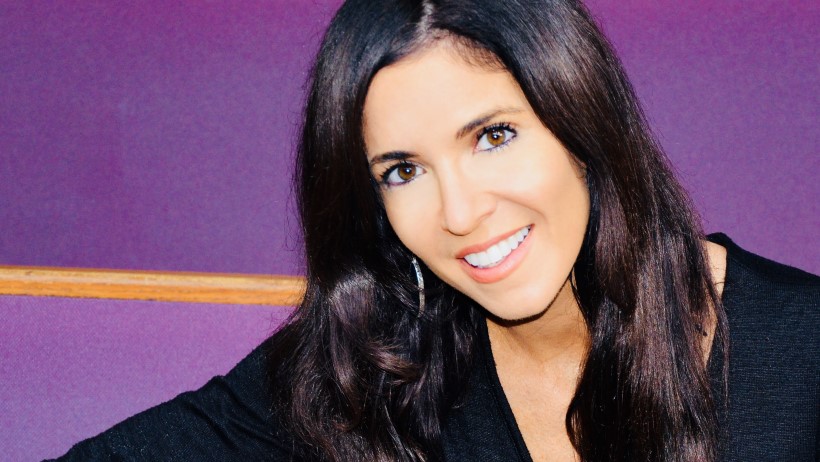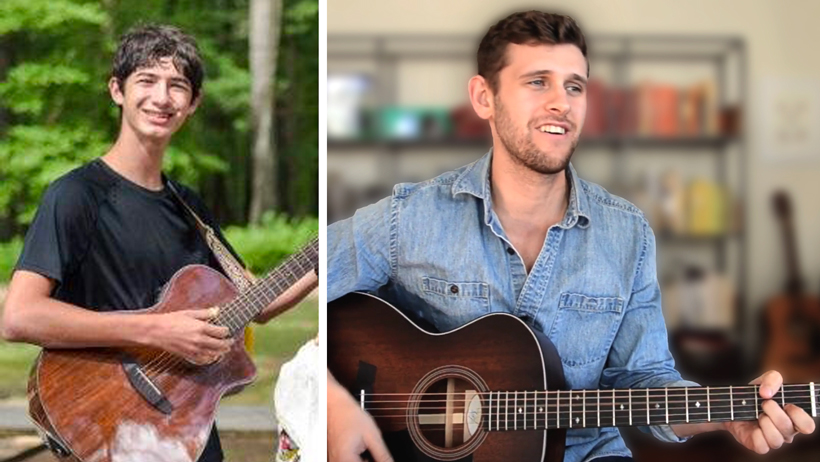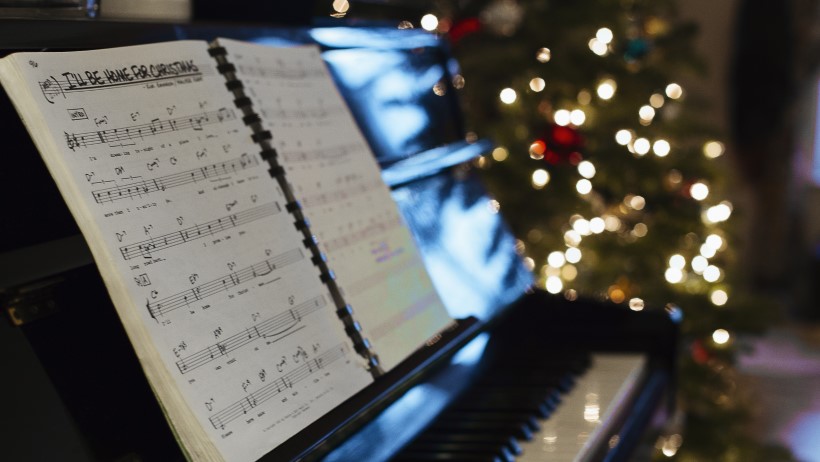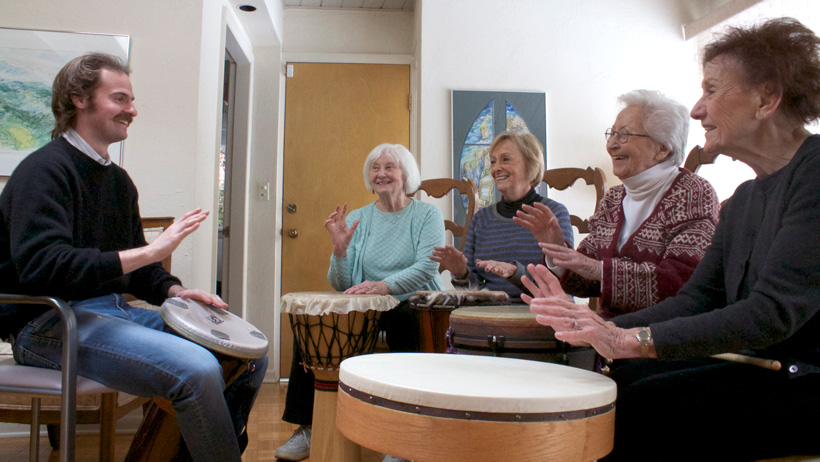About 10 years ago, Laurie Akers traded the Broadway stage for the bimah and never looked back. This month, she's celebrating the release of her first album of original Jewish music, The Key of We .
A Deerfield native, Akers returned to Chicago in 2009 after a decade on Broadway and in touring musical productions, as well as a stint traveling the world to perform for U.S. military troops as Miss USO. It was then that she reconnected to Judaism through music.
Akers became the interim cantorial soloist at Temple Sholom in Lakeview in 2015 and two years ago was named the first full-time cantorial soloist in the 40-year history of Congregation Or Shalom in Vernon Hills. During these past few years she began pursuing cantorial certification and started writing her own Jewish music, not to mention partnering with Jewish Rock Radio to elevate the profile of Jewish music in Chicago.
A powerhouse soprano helping to enrich Chicago's Jewish music scene, Akers is a Jew You Should Know -- and listen to.
1. After so many years in secular music, what moved you to pursue music in Jewish spaces?
My journey towards music in the Jewish context happened extraordinarily organically. I was living in New York, performing in musical theatre productions, when my mom was diagnosed with breast cancer. During that time, I was making monthly trips back to my hometown of Chicago, which planted the seed for me to make a permanent move back home. Three months after relocating back home, I met my husband, Brad. Early on in our relationship, Brad took me to his congregation in downtown Chicago. Although institutional Judaism hadn't been a core part of my life for many years, I was instantly transformed by that Shabbat experience. The fusion of the liturgy and music struck my core, and I experienced a rare moment of knowing exactly where I needed to be. From that moment, I became very passionate about using music to reflect and elevate prayer. The music was my entry point back into Judaism, and I wanted others to have that experience for themselves.
2. Are there any ways that your musical theatre experience informs your approach to musical leadership and your original music?
My career in musical theatre certainly helped me with some of the foundational components of musical leadership. I learned how to find my voice both individually as well as in groups of varying dynamics. Graduating with a music degree certainly informed my overall musicality as well as my process in learning to sing in multiple languages. Musical theatre also taught me how to work from a place of authenticity when given a piece of music. Regardless of the arrangement or genre of music, my musical theatre experience taught me how to work first from the text and then to let the music lift the text. This is also reflective of my original music, as before I embark upon writing any piece of music, I spend a substantial amount of time meditating about the text and then writing music that reflects that meaning.
3. Jewish songwriting is a relativity new endeavor for you. What inspired you to not just start writing, but also to feel confident in putting songs out into the world?
That's an interesting question, as I admit that I have struggled with the "confidence" component. It's extremely vulnerable to create anything that comes from your heart and then put it out into the world. It's hard to think that anything that comes from such a deeply meaningful place can be "judged." Reframing the definition of "putting songs out into the world" really helped me. As a full-time cantorial soloist and cantorial student, I have chosen to dedicate my life to helping others find their voices. By putting my music into the world, I am serving as a living example of that mission. If I focus less on "me" and more on the bigger picture of sharing voices, putting songs into the world serves a much greater purpose.
4. What was your approach and vision behind The Key of We ? What do you hope listeners take away from it?
I have always thought of my life as one long soundtrack. When I look back at most of the substantial moments of my life, there is an association with music. My venture into songwriting happened very naturally, as each piece came from a moment of profound inspiration. When looking at the commonalities among each of my songs, I realize that each was informed by people, whether an individual or an experience within a community. I chose the name, The Key of We , as each song was informed by some form of "We," whether reflecting upon my relationship with my children, my husband, my family, my community or myself. In listening to The Key of We , my hope is that listeners will feel a sense of connection to the "We" that informs so much of our lives. In addition, my hope is that by hearing prayers in a different way, different parts of Jewish liturgy may resonate in new ways.
5. If you could write and star in a musical about any Jewish or Biblical figure, who would it be?
This in an interesting question, as there are characteristics of so many powerful Biblical figures whom I'd love to explore and write about. I find Ruth to be particularly captivating, as she was able to take a challenging past and use it to empower herself and to see a better future. The way in which she found courage to continue to pursue a better life are deeply inspiring. Ironically, I'm currently in the planning stages of a Spring 2020 musical project with two other cantors in which we are exploring the roles of women in both biblical and present times.
6. You've gotten really involved in Jewish Rock Radio and trying to grow the footprint of Jewish music in Chicago. Why do you feel this mission is important?
Jewish Rock Radio is so important for reasons that extend beyond solely music. Jewish Rock Radio helps young adults find pathways towards connecting Jewishly. We are living in a generation in which children are finding their own voices. Jewish Rock Radio broadcasts a significant amount of programming that is centered around all areas of Jewish life. JRR gives artists of all ages a platform to be able to express themselves and to be able to pass along the gift of self-expression to future generations.
Expanding the footprint of Jewish music in Chicago has created an extraordinary bond among our community as well. Chicago has an extraordinary amount of Jewish musicians, cantors, educators and lay leaders who share a special musical bond. When we bond together, we serve as an example of the power of togetherness. Jewish Rock Radio gives smaller communities an opportunity to serve as models on a more national level. The more we can expand the Jewish Rock Radio community, the more people we empower to find their voices and to create connections with themselves, their communities and with God.
7. In an alternate universe where you couldn't sing, what would you do?
In an alternate universe, I would engage in teaching about wellness and fitness. I am extremely passionate about overall personal wellness, nutrition and fitness. I start each day with a personal wellness ritual.
8. What's your favorite Jewish thing to do (or how do you Jew?) in Chicago?
Because I am in a full-time pulpit position, I spend quite a fair amount of time in my shul. I profoundly enjoy spending each Shabbat with my community at Congregation Or Shalom, and I find particular joy when my family joins me as well. In addition, one of my favorite Jewish things to do in Chicago is to get together for Jewish jam sessions with musicians from all over the city. We have created an incredible music family here, and after each session together, I am lifted!
'The Key of We' is now available on Spotify, iTunes and CD Baby, and the next Jewish Rock Radio Chicago Sings Concert is Thursday, May 9 at Or Shalom (and streaming on the Jewish Rock Radio Facebook page starting May 16).




.jpg)





.jpg)



